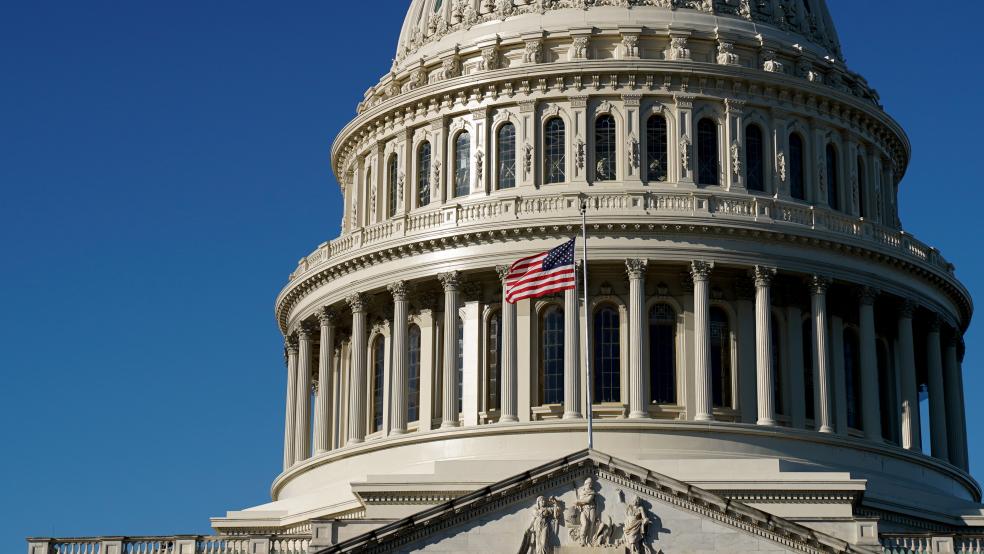As House Republicans continue to push for major spending cuts in exchange for raising the debt limit, Democrats on the Senate Budget Committee held a hearing Wednesday to highlight the role that tax cuts have played in increasing the national debt.
The hearing, titled “The Rich Get Richer, Deficits Get Bigger: How Tax Cuts for the Wealthy and Corporations Drive the National Debt,” included testimony from a number of experts who argued that Republican-led tax cuts are the prime culprit in the nation’s fiscal condition.
In his prepared remarks, Bobby Kogan, a budget expert at the liberal Center for America Progress, said that “without the Bush tax cuts, their extensions, and the Trump tax cuts, which gave a disproportionate share of their benefit to the rich, the ratio of debt to gross domestic product (GDP) would be declining indefinitely … our current rising debt ratio is due entirely to these tax cuts, not spending increases.”
Kogan called on lawmakers to look at revenue losses from tax cuts in the effort to control the debt. “Any discussion of how to address the deficits caused by these tax cuts should look first to the source,” he said.
Bruce Bartlett, a one-time Republican economist who helped pass tax cuts in the Reagan White House but now considers himself an independent, argued that the current standoff over the debt ceiling must be seen in light of Republicans’ main political project, which is to reduce government as much as possible. “Republicans believe in a theory called ‘starve-the-beast,’ which posits that the only way to cut spending is to slash taxes first,” he said. “It is precisely because tax cuts reduce revenue and raise the deficit that this works. However, deficits, in the Republican mind, arise only because of spending, never because of tax cuts. Thus their response to higher deficits is always to cut spending.”
Bartlett said that the Republican insistence on spending cuts and refusal to consider revenue increases means that the cost of their efforts is borne by those who benefit from federal programs. “These are often the poor and politically powerless,” he said. “But if the benefits of deficit reduction are large, then the cost should be shared by all Americans to the greatest extent possible. The only way to reach many well-to-do Americans is on the tax side of the budget. Thus tax increases are essential to fairness.”
As expected, Republicans on the committee and their expert witnesses rejected the idea that cutting taxes could somehow increase the deficit and instead blamed spending. “The problem isn’t tax cuts, but unchecked spending,” said Sen. Chuck Grassley, the ranking member. “Over the next decade, spending is projected to average 24.1 percent of our economy, a level previously reserved for times of war or recession.”
Adam Michel of the libertarian Cato Institute made much the same argument, though with many more charts and tables. At the same time, he noted that the argument over the cause of the debt and deficit “is simply a proxy argument over the appropriate size of the government.” Republicans want to cut spending because they want to keep taxes low and government small. “The United States is a low-tax country compared to similar countries around the world,” Michel said. “So, if Congress wants to keep the United States a relatively low-tax country, spending will need to come down to meet revenues. On the other hand, if Congress decides that our current spending levels and projected spending increases are appropriate, taxes will eventually need to increase to match spending levels.”




